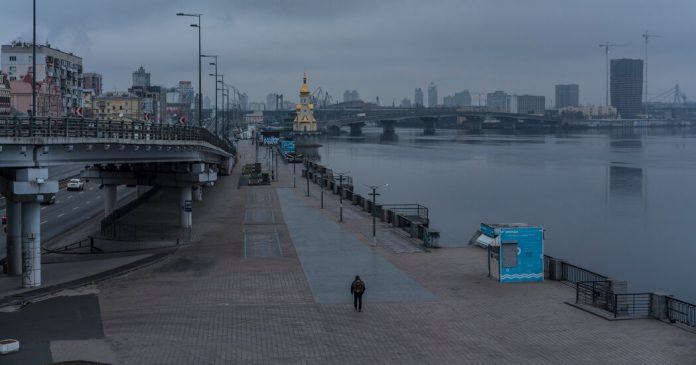In exercising discretion over how unverified or false content material is moderated, social media firms have determined to “choose a facet,” in line with Alex Stamos, the director of the Stanford Web Observatory and a former head of safety at Fb.
“I believe this demonstrates the bounds of ‘fact-checking’ in a fast-moving battle with actual lives at stake,” Mr. Stamos mentioned. He added that know-how platforms by no means created guidelines towards misinformation general, as an alternative concentrating on particular behaviors, actors and content material.
That leaves the reality behind some wartime narratives, like an obvious assassination plot towards Mr. Zelensky or just the variety of troops killed in battle, pretty elusive, at the same time as official accounts and information media share the data.
These narratives have continued because the battle marches on, revealing the contours of an info battle aimed not simply at Western audiences but in addition Russian residents. On the United Nations on Monday, the Ukrainian ambassador, Sergiy Kyslytsya, shared a sequence of textual content messages apparently retrieved from the telephone of useless Russian soldier.
“Mama, I’m in Ukraine. There’s a actual battle raging right here. I’m afraid,” the Russian soldier apparently wrote, in line with Mr. Kyslytsya’s account, which he learn in Russian. The story appeared to evoke a story superior by officers and shared extensively on social media that Russian troopers are poorly skilled, too younger, and don’t need to be combating their Ukrainian neighbors. “We’re bombing the entire cities collectively, even concentrating on civilians.”
The story, whether or not true or not, seems tailored for Russian civilians — notably mother and father fretting over the destiny of their enlisted kids, consultants mentioned.
“That is an age-old tactic that the Ukrainians try to make use of, and that’s to attract the eye of the moms and the households in Russia away from the extra grandiose goals for battle, onto, as an alternative, the human prices of battle,” mentioned Ian Garner, a historian specializing in Russia who has adopted Russian-language propaganda throughout the battle. “We all know that that is actually efficient.”


